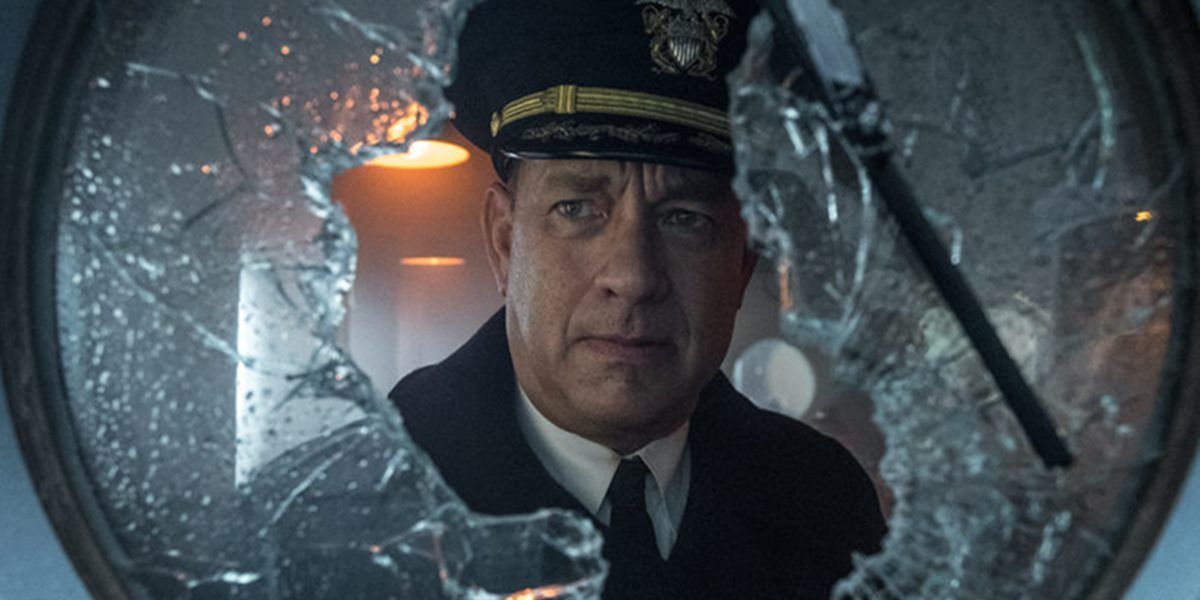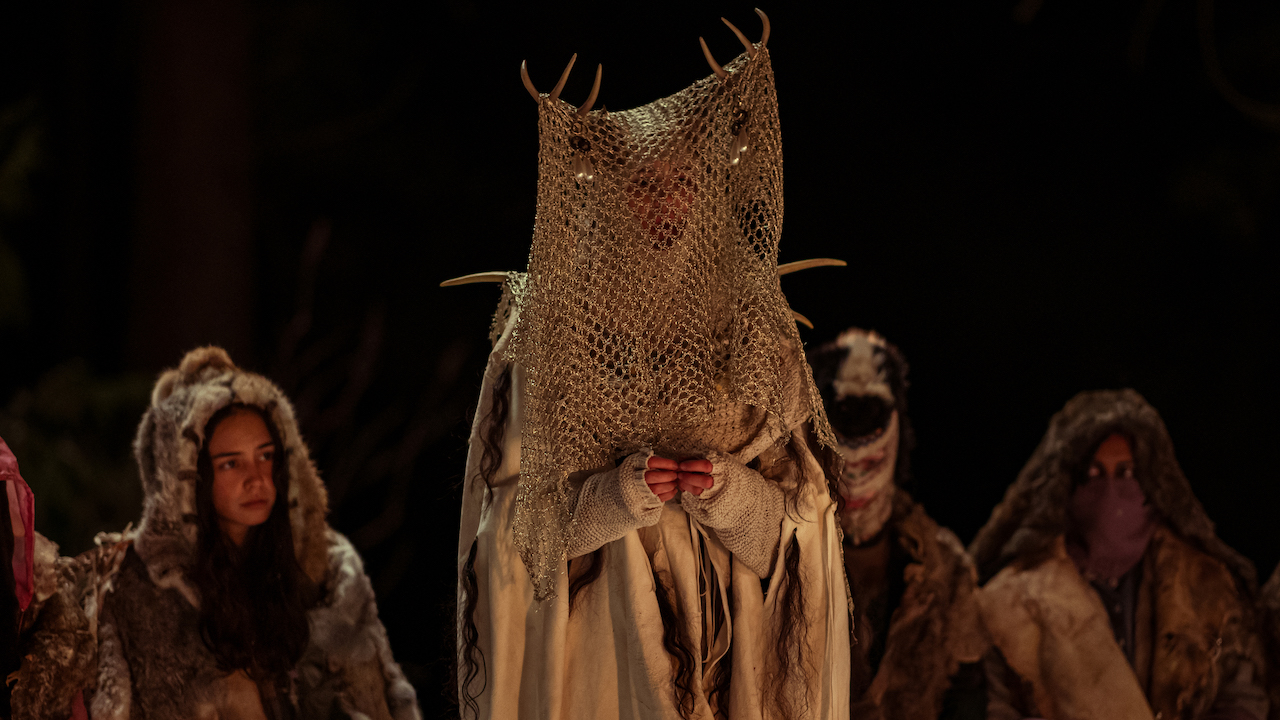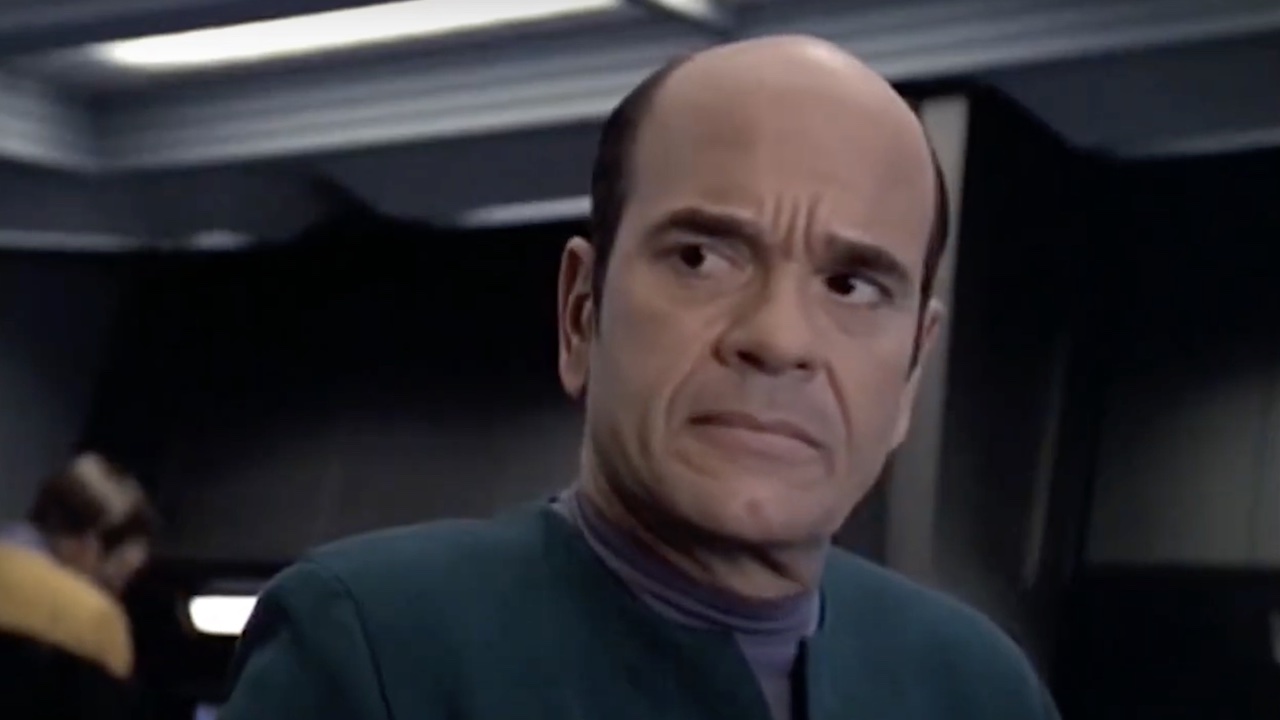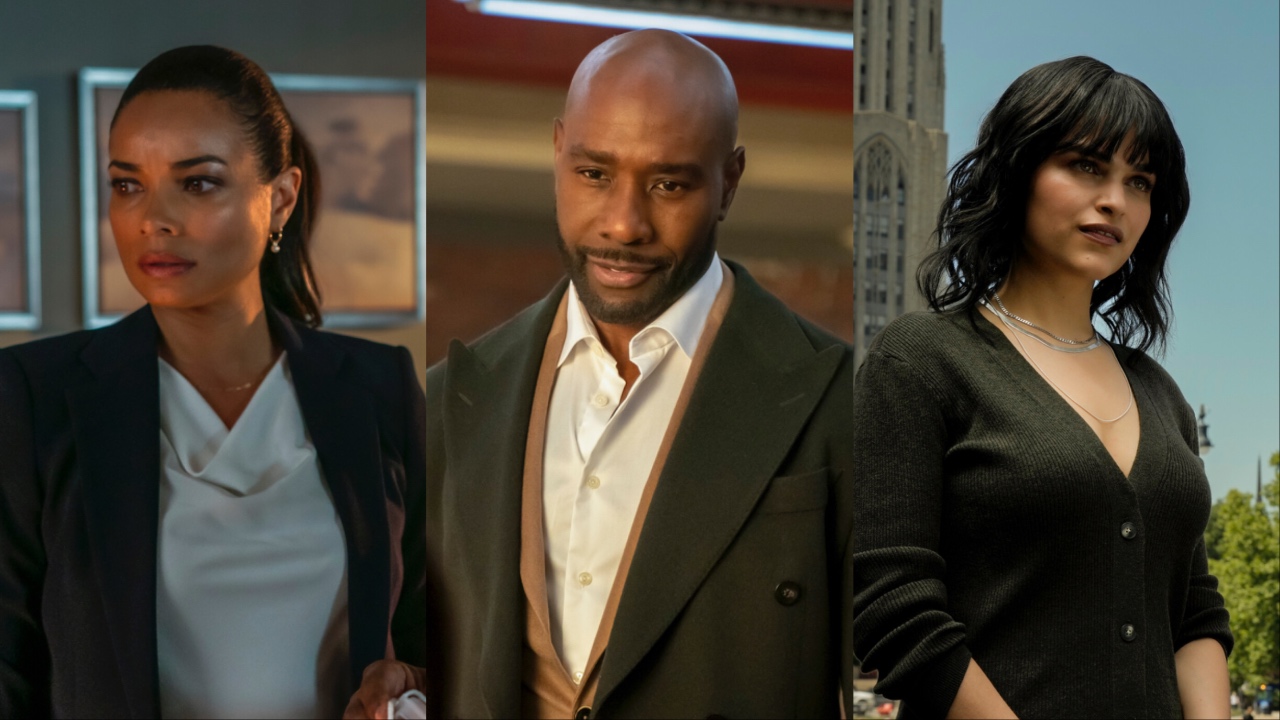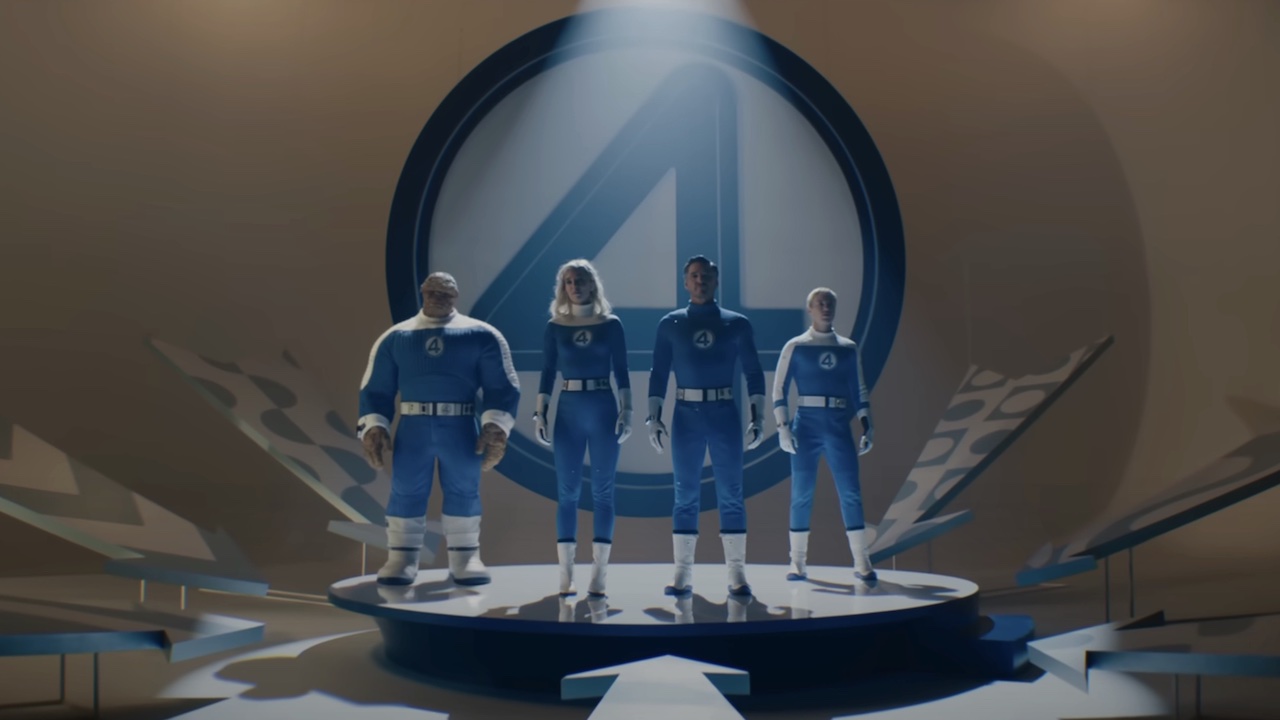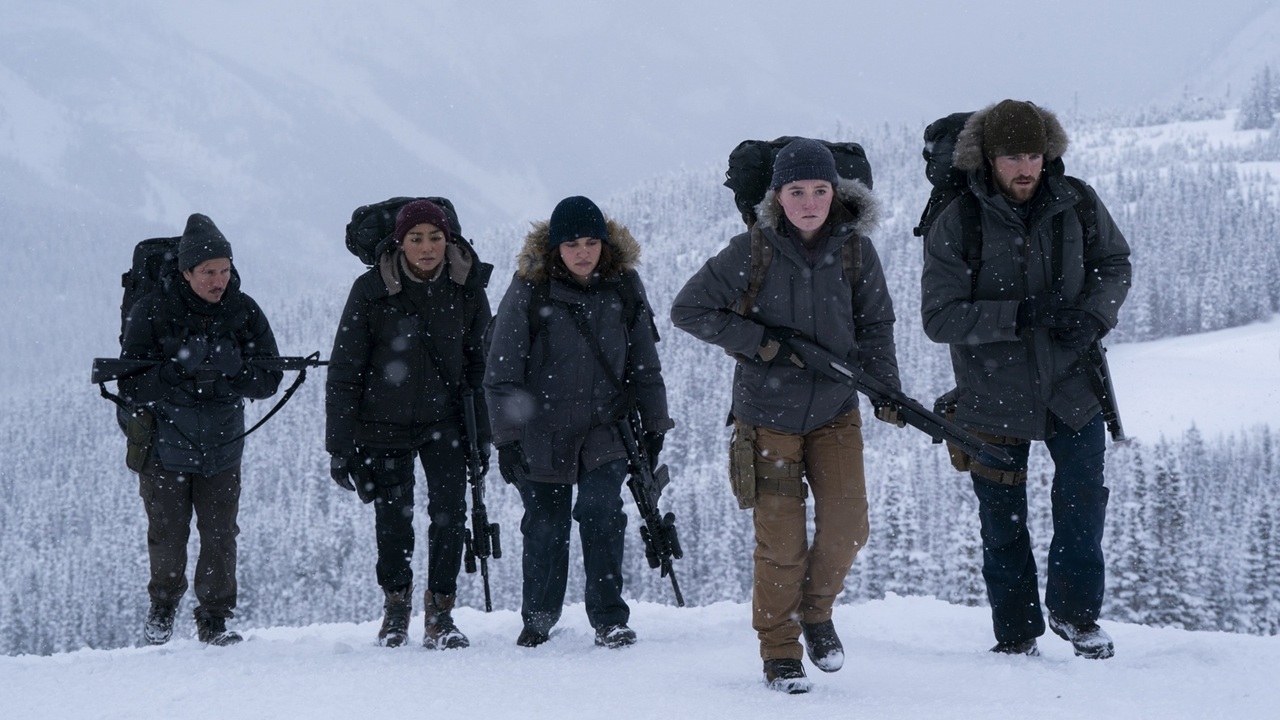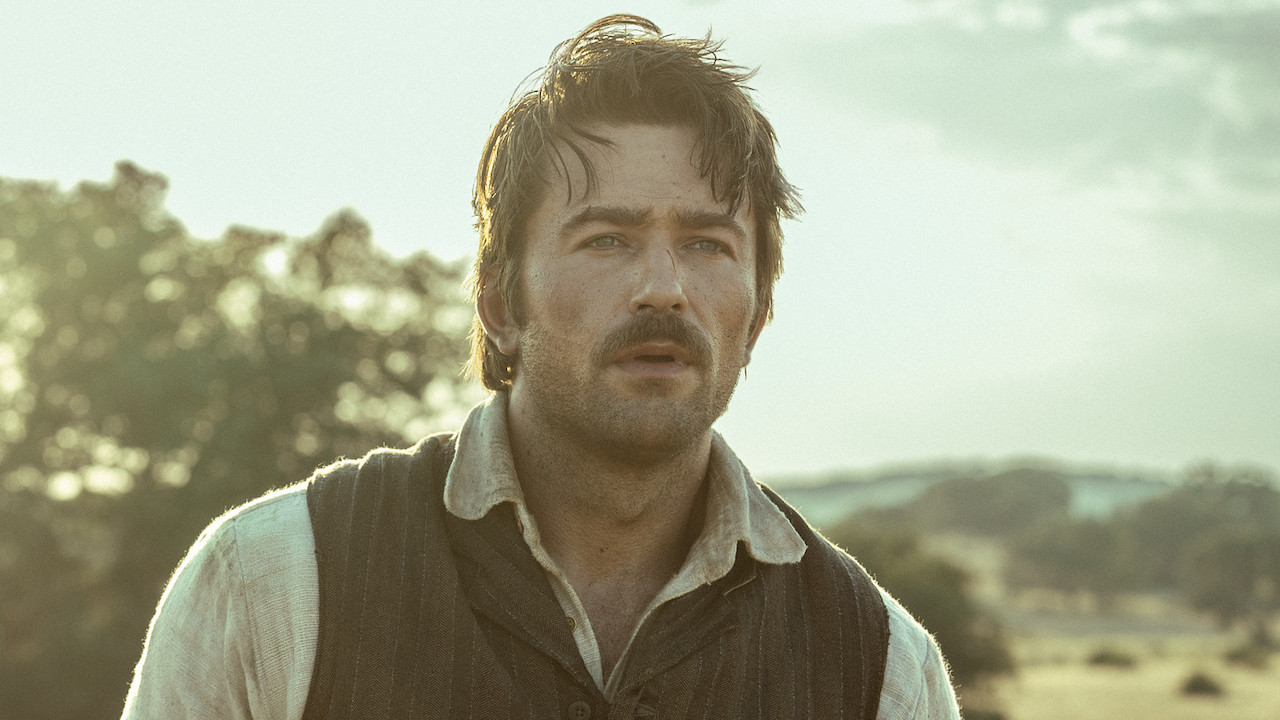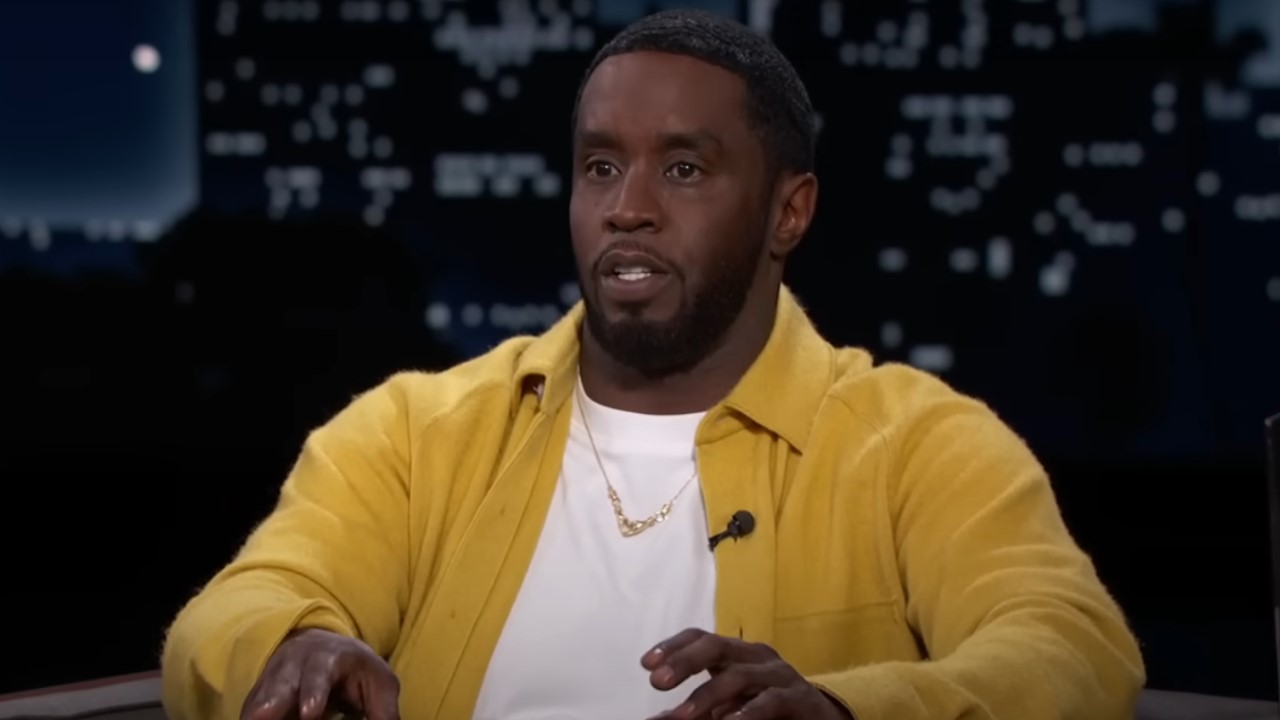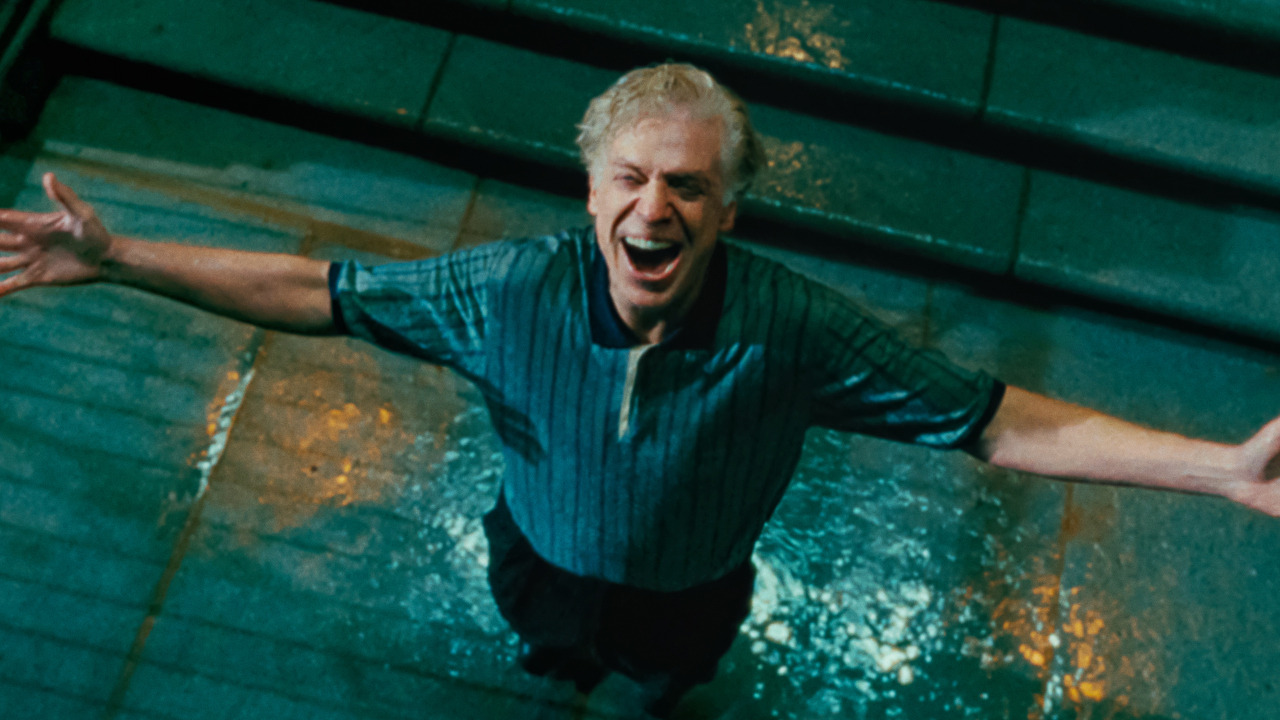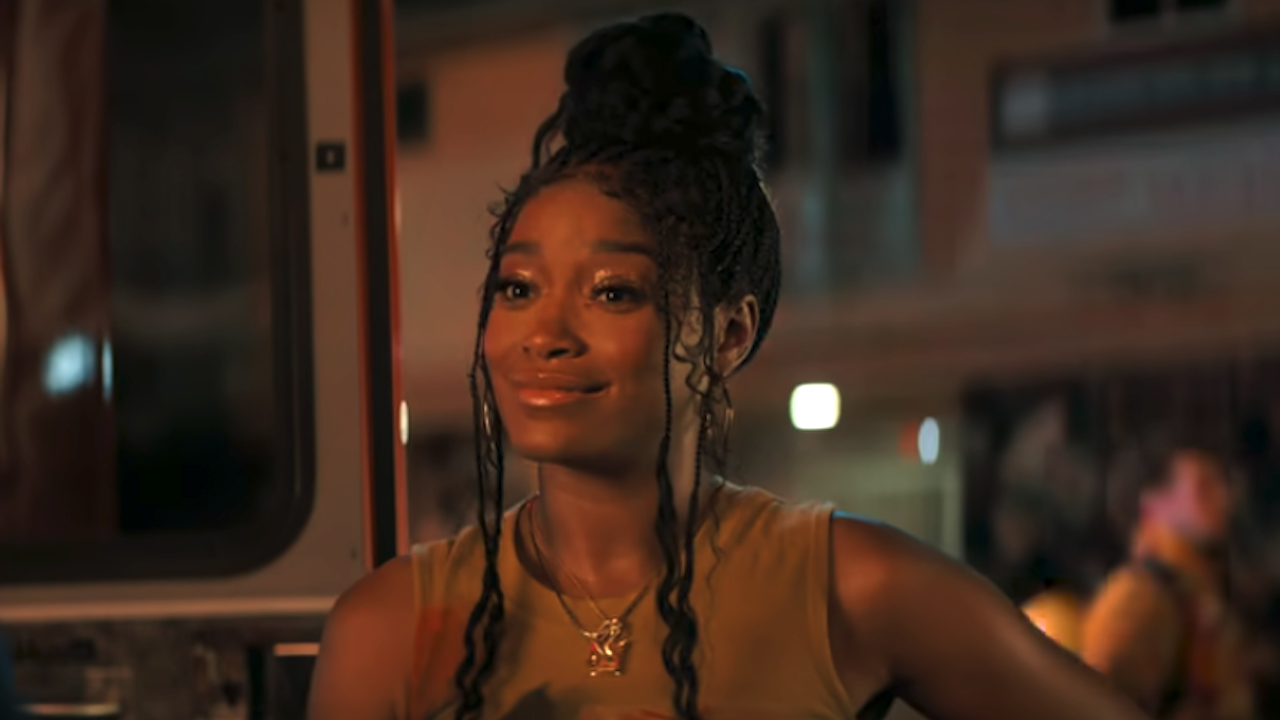Greyhound Ending: What Happened At The End Of The Tom Hanks Movie, And What It Means
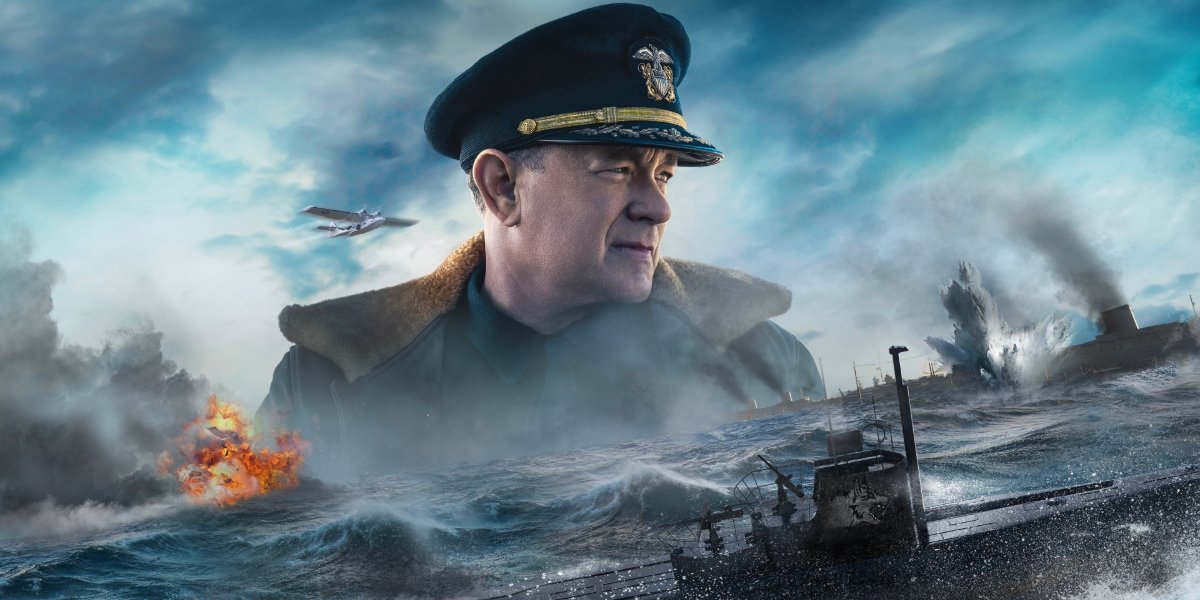
Warning: spoilers for Greyhound are in the water. If you haven’t seen the movie yet, turn around and come back once you’ve experienced it for yourself.
This weekend sees Tom Hanks headed into another perilous adventure based on a true story, as Greyhound makes its debut on Apple TV+. However, if you’re a Hanks fan, or a World War II history nut, you probably already knew this. In which case, you’re here to read more about what exactly Greyhound’s ending entails, as the film is a little vague about where it leaves Hanks’ Captain Ernest Krause. As it turns out, the finale to the film actually takes on a bit of a different meaning when you really look at it.
Looking at what the ending of Greyhound presents to the audience, as well as the details of its source material, there’s a lot more going on than viewers may have picked up on. If you haven’t seen the film for yourself, this is the last chance to back out and head to another story in our coverage of this historical thriller. Otherwise, it’s time to dive into what the ending of Greyhound truly means.
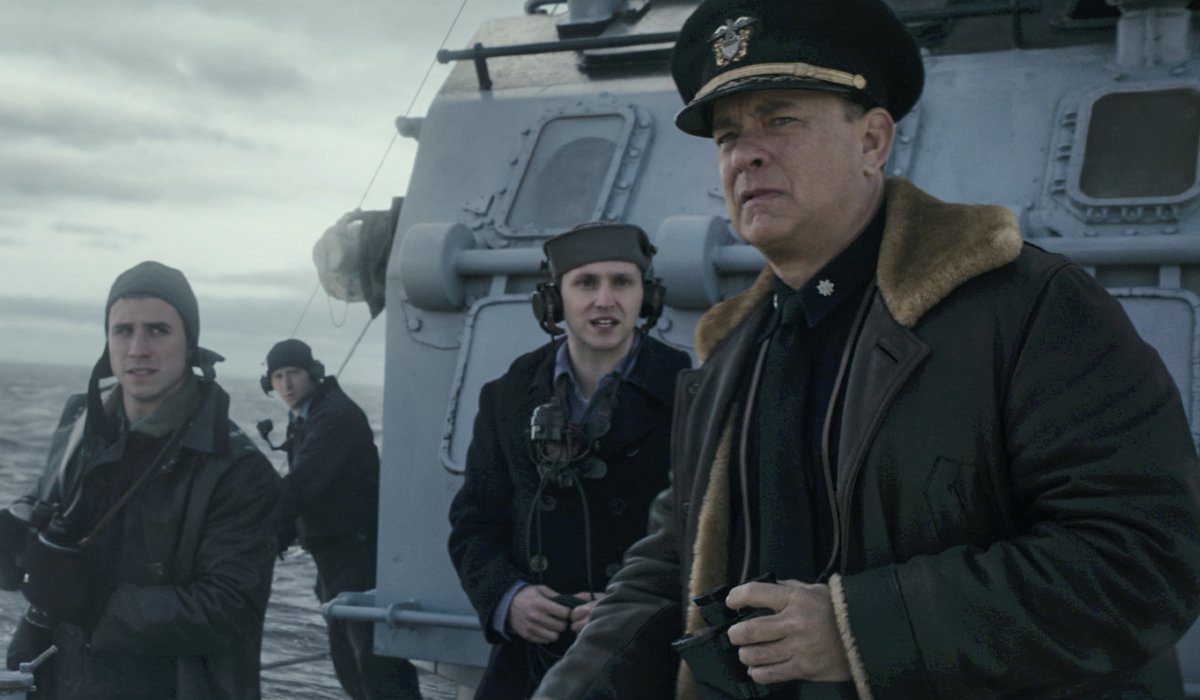
What Happened At The End Of Greyhound
After a harrowing couple of days crossing the Atlantic Ocean, the USS Keeling (going by the call sign Greyhound,) survives its battle against several German U-Boats. Most notably, Captain Ernest Krause (Hanks) bests the sub known as “The Grey Wolf,” as Greyhound squares up and blasts it out of the water. With its compliment of supply ships under the watchful eye of air cover, Captain Krause is ordered to escort two injured ships, The Dickey and The Harry, on to Londonderry.
As he heads back to his bunk, Ernest sees something that gives him hope. As they flood the decks of their supply ship, sailors on a passing vessel whoop and holler in honor of Greyhound’s success in protecting them. After several days without properly eating or sleeping, and with a foot injury that definitely needs some attention, Greyhound sees Ernest ending the film as he started it: with a thoughtful prayer in his bunk, and his memories of Evelyn firmly in his mind.
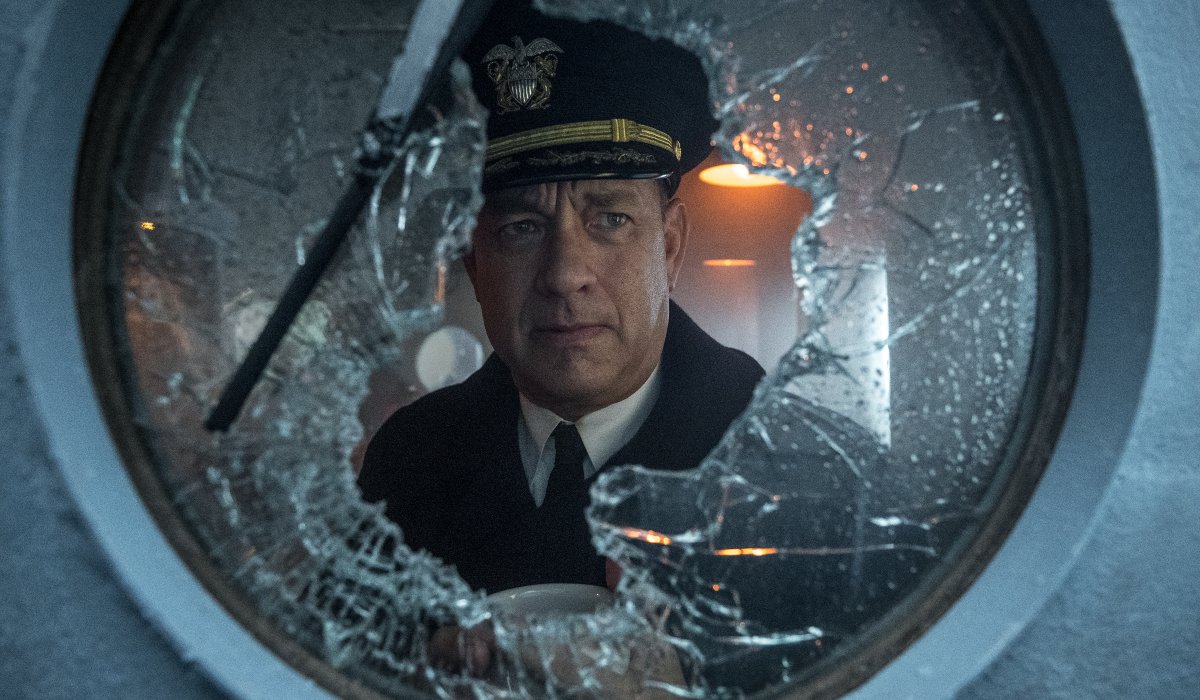
Is Greyhound Based On A True Story
While Greyhound is touted as being “inspired by true events,” there’s another layer to that particular claim. The inspiration for Tom Hanks’ screenplay is a two-pronged source, with the first prong being the 1955 novel The Good Shepherd, written by author C.S. Forester. That particular book is more focused on Captain Ernest Krause, his personal history, and his insecurities in the line of duty; which gave Hanks a great character to use in Greyhound’s action packed narrative.
The actual historical event that inspired both Greyhound and The Good Shepherd was the “Battle of the Atlantic.” A campaign that spanned from 1939 to 1945, it’s described in the beginning of Greyhound as the movement of supplies between Allied forces across the Atlantic Ocean. It’s known as the longest continuous action during World War II, and in the title card shown at the end of the film, it is revealed that 3,500 cargo ships were sunk, as “72,200 souls were lost forever.”
CINEMABLEND NEWSLETTER
Your Daily Blend of Entertainment News
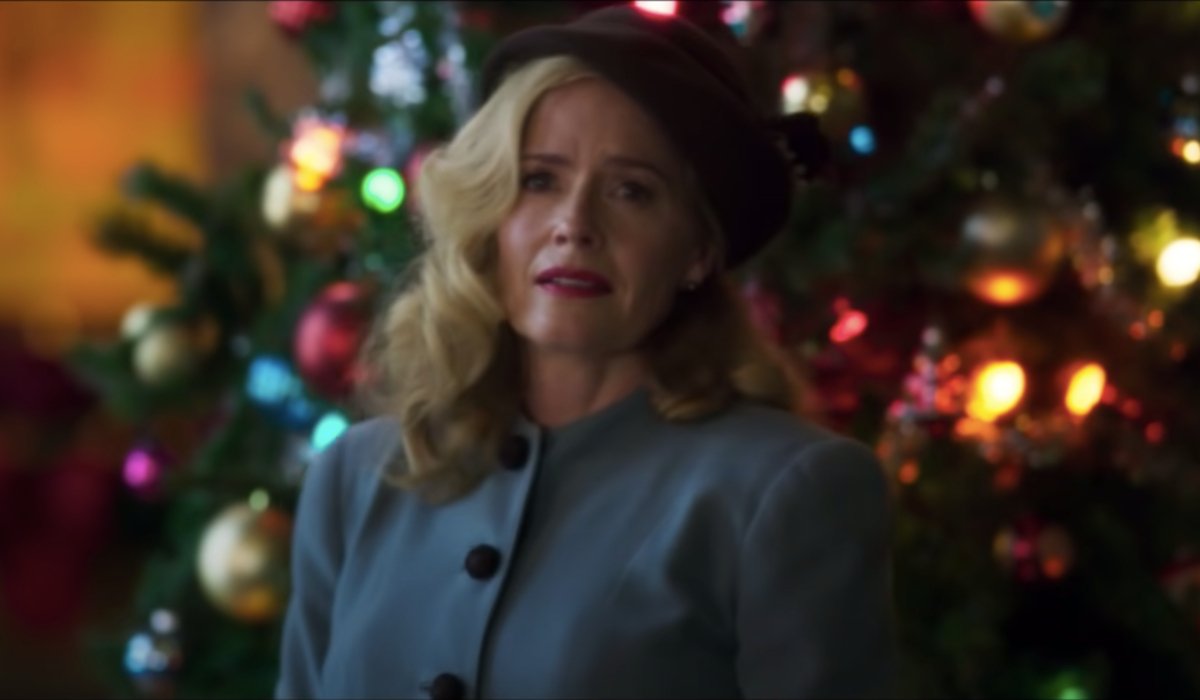
What The Good Shepherd Says About Greyhound’s Ending
Looking at the summary of The Good Shepherd, it appears that Tom Hanks stripped the story of Captain Ernest Krause down to the nuts and bolts for Greyhound. That’s not to say it isn’t an entertaining thrill ride, as that’s exactly the function the film serves. However, Captain Krause’s insecurities and personal history come off as a little vague. The summary of the book’s narrative makes a couple of the things clearer. As it turns out, Captain Krause has been passed over for command several times before Greyhound’s course of events, which makes him very much a man of self-doubt.
We see hints of this in the film, but apparently C.S. Forester’s novel plays this card a little more prominently. Another difference is Ernest’s relationship with Evelyn (Elisabeth Shue) the woman he wants to propose to in an early flashback sequence. In The Good Shepherd, Ernest was actually married prior to his service on the USS Keeling, but his wife left him because of his dedication to his duty. In either case, it looks like Captain Krause’s fervent belief in his military service cost him the woman he loves; and quite potentially a lot more.
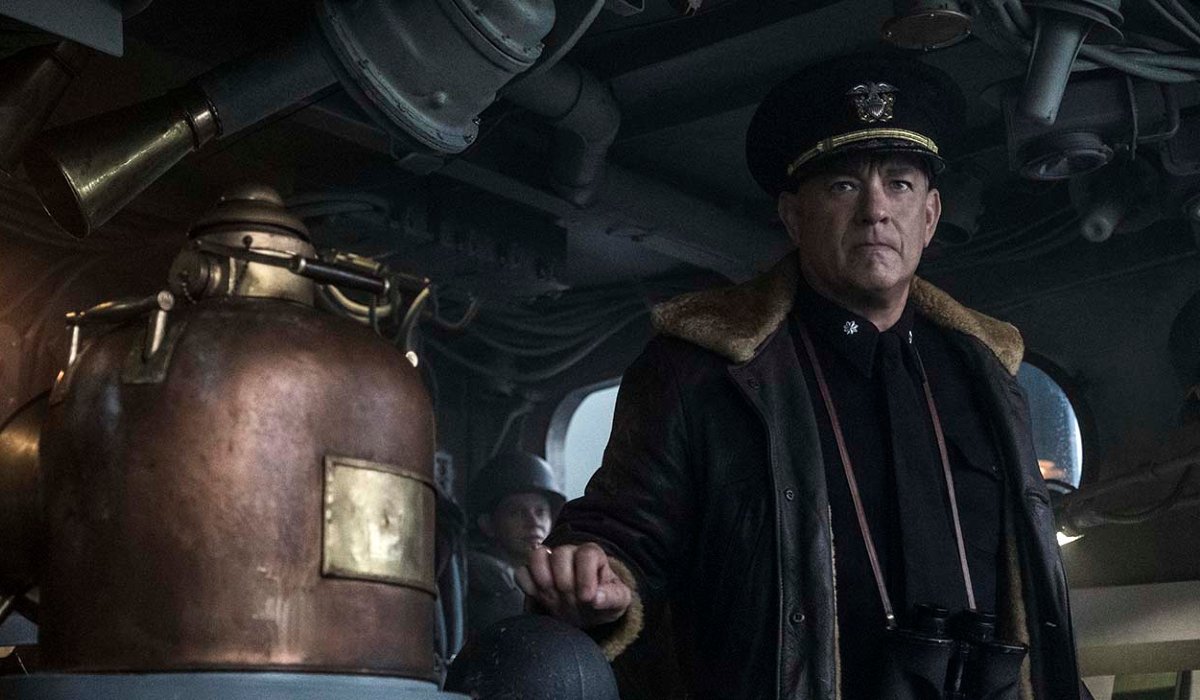
Is The Ending Of Greyhound Really A Happy Ending
On the surface, Greyhound ends on a rousing note, with Tom Hanks’ Captain Ernest Krause and his crew surviving the dangers of their transatlantic crossing. If you leave it at that, it’s a standard happy ending, and you can walk off happy. However, the devil is once again in the details, as this narrative is bookended by title cards that set the scene for one crucial piece of context: the USS Keeling may have won the battle, but it’s just the beginning of the war.
Taking place in February 1942, Greyhound happens towards the beginning of U.S. involvement in World War II. As such, there’s plenty of war ahead for the crew of the Keeling, and knowing how dangerous their duties depicted in the film were, there’s a good chance their losses won’t end there. The clincher is the fact that the thought of Evelyn at the end of Greyhound, and remembering her plea to wait until they can truly be together, takes on a new light when considering The Good Shepherd. Even if Ernest makes it out of the war alive, his sweetheart isn’t guaranteed to be there waiting for him.
Greyhound’s ending is ultimately something that’s up to the audience to decide on whether or not it’s a bittersweet triumph or a celebration of resilience and fortitude. The case can be made for both, depending on whether you want to take into account the literary source material. While aspects from The Good Shepherd are omitted to a certain degree, the influence is still there. If you want to give the film another look, or if you’ve read through this rundown on Greyhound’s ending without seeing it for yourself, you can currently stream the film on Apple TV+.
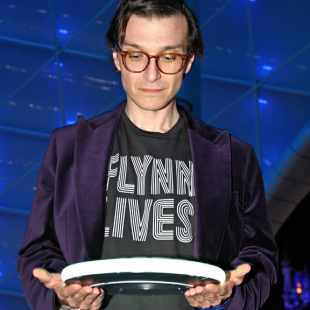
Mike Reyes is the Senior Movie Contributor at CinemaBlend, though that title’s more of a guideline really. Passionate about entertainment since grade school, the movies have always held a special place in his life, which explains his current occupation. Mike graduated from Drew University with a Bachelor’s Degree in Political Science, but swore off of running for public office a long time ago. Mike's expertise ranges from James Bond to everything Alita, making for a brilliantly eclectic resume. He fights for the user.
